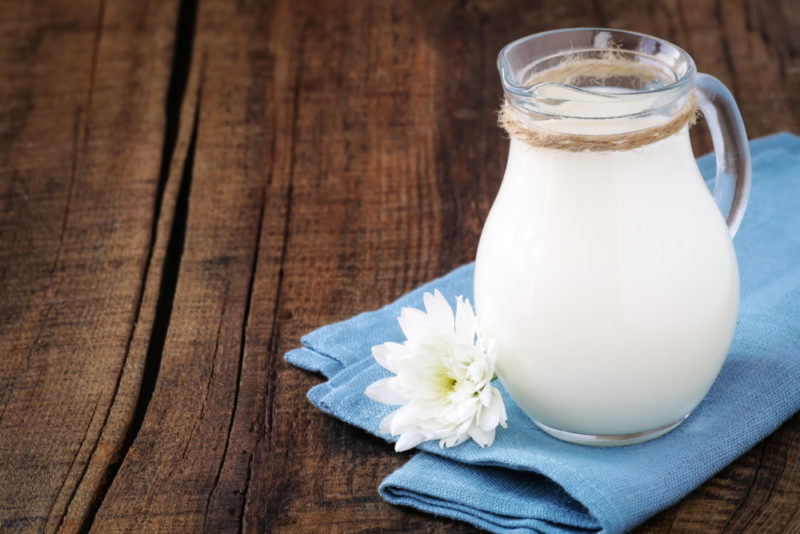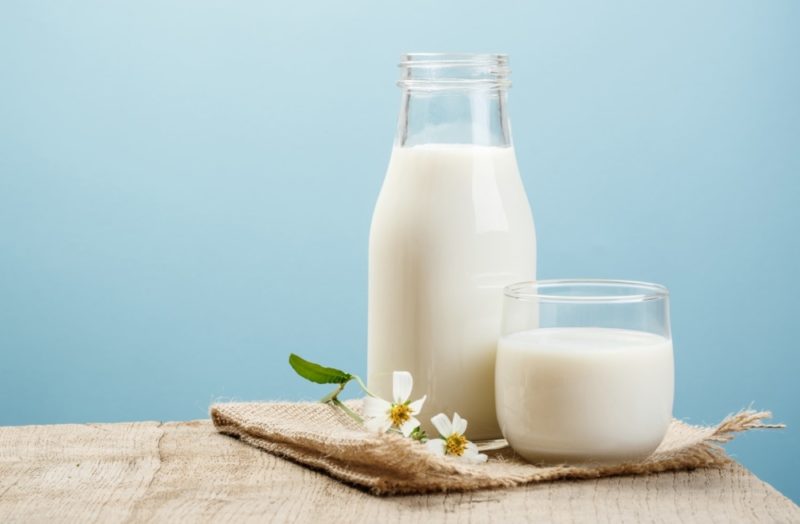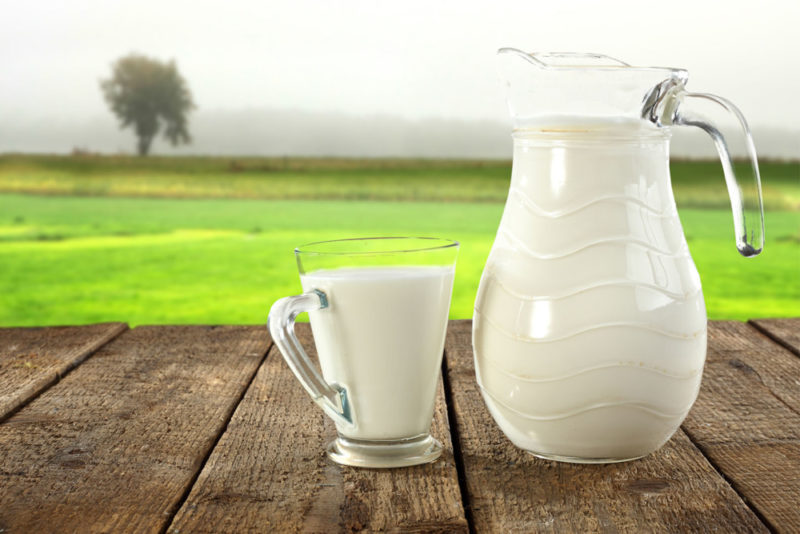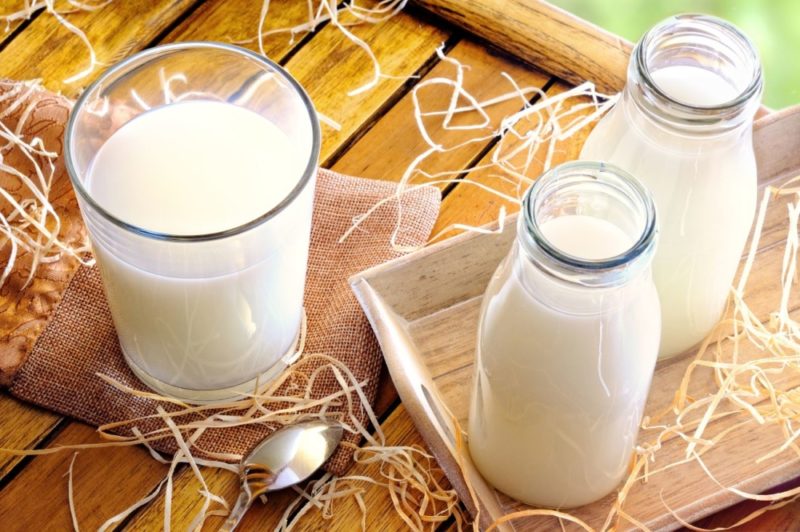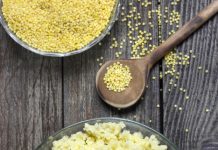For many millennia, a food product and a drink remain one of the most important in the diet of people of different ages. Only the desire to lose weight can make you worry about how many calories are in milk, if its use will harm the figure. Energy value depends on fat content, the content of bioactive substances - on the processing method.
Material Content:
Chemical composition and nutritional value
At all times, milk was considered one of the main and most valuable baby food products. The drink contains proteins, fats and carbohydrates in a ratio favorable for a growing organism. Sweet taste depends on the content of milk sugar.
Chemicals in cow's milk (per 100 g of product):
- water - up to 88 g;
- lactose - 5.2 g;
- other sugars - 5.2 g;
- calcium compounds - up to 140 mg;
- cholesterol - 10 mg;
- fatty acids (over 50 g);
- vitamins A, D, group B, C.
Thus, the nutritional value of milk is high.
The content of chemicals depends on the breed of cattle or small cattle, its nutrition, care. In 100 g of cow's milk - 3.2 g of protein rich in essential amino acids. When heated and boiled, part of the protein molecules is destroyed and precipitated. Pasteurization instead of sterilization allows you to save more nutrients.
Calorie content and BJU in milk of different types and fat content
The product enters the distribution network with various fat content. Accordingly, the calorie content of milk varies widely. The average energy value of cow’s milk of the “reference” 2.5% fat content is only 56 kcal (per 100 g of product).Less high-calorie skim milk is very popular among people who lose weight.
How many calories in a glass of milk, mainly depends on its fat content.
The amount of fat in whole cow's milk weighing 100 g is 3.2 g, carbohydrates - 5.2 g. Whole milk contains more saturated fatty acids (FA) - 1.9 g, monounsaturated - 1 g per 100 product. Lipids form the smallest drops in water, so milk is not a solution, but an emulsion. The main carbohydrate component is lactose (a disaccharide consisting of galactose and glucose residues).
Fat and average calorie content of cow's milk (per 100 g):
- fat-free —31 kcal;
- 2.5% - 52 kcal;
- 3.2% - 56 kcal;
- 5% - 65 kcal;
- 6% - 90 kcal;
- condensed - from 259 to 270 kcal.
Goat - an alternative to cow's milk, can be used in the nutrition of allergy sufferers. The protein composition is richer than cow's, almost the same as breast milk. Goat is easily digested, contains a lot of carotene, vitamin D and calcium, but the level of B12 and folic acid is lower. Its calorie content will be about 68 kcal per 100 g.
Soy milk is a drink from the seeds of the same plant. A plant product popular with vegetarians. By the content of proteins and fats, calories, soy milk is comparable to cow. Energy value is 53 kcal per 100 g.
Coconut milk is a rare drink so far. Calorie content of 100 g - 20 kcal. It can be added to coffee, thereby reducing the energy value of food.
The content of vitamins and minerals
Cow's milk supplies over 120 different components to the body. These are 20 amino acids, 15 fat-and water-soluble vitamins, enzymes. The content of retinol is 28 μg, B1 - 0.04 mg, B2 - 0.18 mg, B12 - 0.44 μg, D - 2 IU. Indicators are given per 100 g of product.
The calcium content in cow and goat milk can reach 140 mg, in soy and coconut milk - lower.
Other macronutrients in cow's milk are sodium, potassium, phosphorus, and sulfur. Trace elements: zinc, copper, iron and almost half of the periodic table.
Useful properties of the drink
Fresh cow and goat milk has bactericidal properties. Enzymes, immunoglobulins, and white blood cells in drinks inhibit the activity of pathogenic bacteria strains. Therefore, the use of fresh milk is useful for infectious diseases.
All components of milk are important, but vitamin D and calcium have gained particular importance. The reason is that other foods and drinks contain less of these substances. Milk, as a source of calcium and vitamin D, is good for a fast growing baby’s body.
The product can serve as the basis for the preparation of many dishes, including dietetic food. Sour-milk products have acquired the same importance.
Contraindications
It is more difficult for adults to get all the beneficial substances from milk due to a deterioration in the digestibility of the drink. The reason is the development of enzyme deficiency. Milk often causes intestinal upset in the elderly. Drink is contraindicated in case of individual intolerance to milk sugar. This disease does not depend on age and heredity.
Enzyme deficiency should be distinguished from food allergy. Allergic reactions are more often caused by cow's milk. Young children are most susceptible to the disease. Goat milk is considered less allergenic.
With intolerance and allergies to animal milk, you can use soy and coconut. These species are more useful and for a number of reasons. Plant products less accumulate antibiotics and other drugs used to treat and stimulate the growth of animals.


